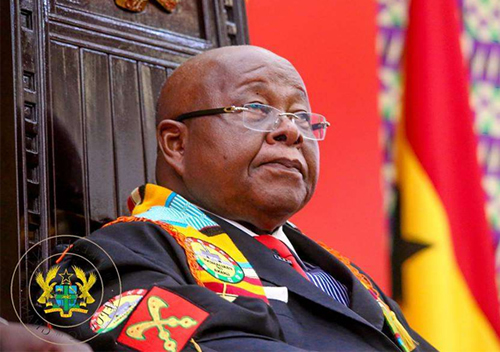Former Speaker of Parliament, Professor Mike Oquaye, has highlighted a critical issue in Ghanaian politics, acknowledging that many Members of Parliament (MPs) are guilty of making promises they shouldn’t be responsible for fulfilling. Speaking during an interview with Starr FM, Prof. Oquaye pointed out that MPs often find themselves committing to infrastructure projects like road construction, which are beyond their mandate, primarily due to pressure from constituents. He described this practice as incorrect but admitted that it has become a widespread issue within the country’s political system.
“We are not applying the role of MPs well,” Prof. Oquaye remarked. “MPs are saying they will make roads, they will do this, and they will do that as a result of the people’s push. It is wrong, actually, but we are all guilty of it. We are all guilty of it, and in fact, the society expects you to do that.”
Prof. Oquaye, a seasoned political figure, stressed that the core responsibility of MPs should not be tied to the direct implementation of projects but rather to legislative duties and advocacy. He argued that the current situation misrepresents the role of parliamentarians, creating unrealistic expectations among citizens, who often see MPs as development agents rather than their actual role as lawmakers.
To address this issue, Prof. Oquaye advocated for a shift in how the District Assemblies manage funds, particularly the District Assemblies Common Fund. He proposed that MPs should have no direct access to these funds but should instead play a supervisory role, ensuring that the money is spent wisely and projects are executed properly.
“At one time, I was advocating that concerning the common fund, they should leave all common funds to the assembly and let the assembly apply the common fund,” Prof. Oquaye explained. “The MP should help in directing how it should be done. They would not hold any money. He or she will not hold any money. In other words, no money will be given to them directly. They will not be involved in the dispensation of money but will rather inspect projects to ensure that the money being paid to a contractor is fair enough, whether shoddy work is being done or not.”
In this model, MPs would shift from the role of project financiers to project inspectors, helping to ensure accountability without directly handling funds. This would help redefine their relationship with their constituencies, focusing on governance and oversight rather than physical development promises.
By suggesting this separation of powers and responsibilities, Prof. Oquaye aims to align the expectations of citizens with the constitutional mandate of their MPs, reducing the pressure on MPs to act as development agents and allowing them to focus on their legislative duties.

